This Blu-ray title from Arrow Video is now available for purchase.
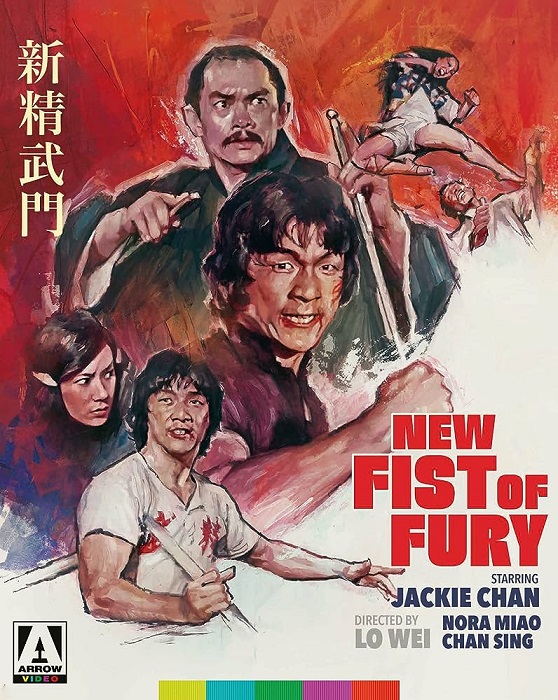
In the late 1960s, actor/martial artist Bruce Lee was making a big name for himself, appearing as Kato in the popular US TV-series The Green Hornet and doing numerous guest spots on other programs. Of course, he was eyeing bigger projects and got his chance in Hong Kong, starring in The Big Boss (aka the confusingly named Fists of Fury). His second lead appearance was in Fist of Fury and the film was a massive success worldwide. Of course, one imagines that producers immediately wanted a sequel, but there were a couple of obstacles in their path. Later that year, Warner Bros. produced and released the huge hit Enter the Dragon, securing Lee’s spot as a Hollywood star. The other major issue was both the passing of Lee and the fact that Chen Zhen, who was his character in Fist of Fury, didn’t survive the original movie.
Regardless, these problems didn’t stop a pair of Hong Kong production companies from trying to cash-in with unofficial sequels. The 1976 follow-up Fist of Fury Part II dismisses some of the original characters (including Zhen’s unnamed love interest, who commits suicide at the start of the picture) and details the exploits of Lee’s character’s brother seeking revenge. The other title came during the same year from Fist of Fury director Lo Wei. New Fist of Fury (1976) told an entirely different story with a new lead who would himself soon become a major star… Jackie Chan. Arrow Video is now presenting this movie on Blu-ray with a sharper image quality (specifically, a 2K restoration) and plenty of extras that certainly help newbies understand how the film came about and its unique place in movie history.
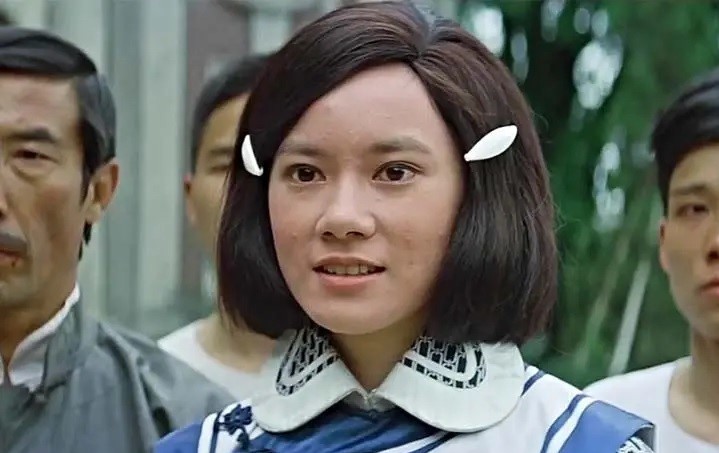
The original was set at the beginning of the 20th century and involved its protagonists fighting against the rule of the Japanese occupiers who had taken control of their region. After the events of the first picture, the female lead now goes by the name Mao Li-Er (Nora Miao). She and her brother Sampo (Chiang Kim) choose to escape their home and sneak out of the country. They arrive in Taiwan to stay with their grandfather and then set out to start a martial arts academy, but also find that this land is under the control of the Japanese. While making their way through customs, the late Zhen’s nunchaku (or nunchucks) is stolen by Taiwanese thief Ah Lung (Jackie Chan). Once he learns who the weapon belonged to, he regrets his act. Despite an aversion to fighting, the young man decides to help out Mao Li-Er and help her and her academy square off against nasty Japanese Karate master Okimura (Chan Sing) who wants to control all schools in the country.
The Blu-ray boasts an upgraded picture and two very different versions of the film. One is the original Hong Kong version that runs 120 minutes. It wasn’t a success and so, once Chan hit the big time, director Lo Wei recut the film down to 82 minutes and the picture was rereleased. This version also failed to attract a large audience at the time, but as the years have passed interest has grown. It’s largely because the movie featured Chan’s first starring role (he did take the lead in one earlier picture, but it wasn’t finished or released until much later).
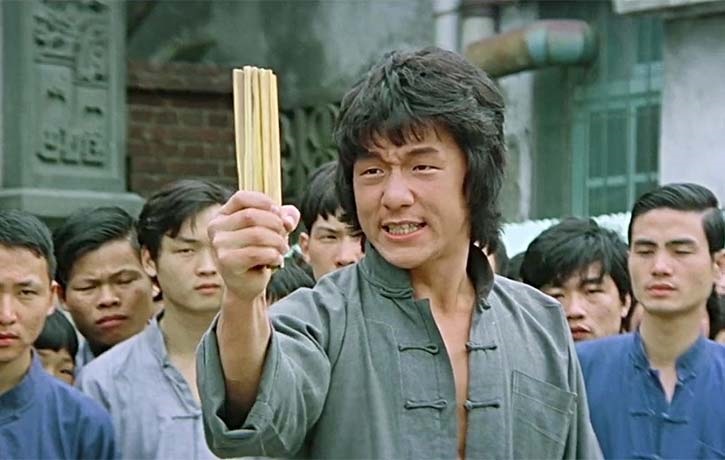
It’s fascinating to watch, if only to see Chan start to find his footing as a leading man. This title is far more serious that his later works, but the artist does add a few humorous winks and nudges that help the movie get past some overly somber passages. An accident involving the use of Zhen’s weapon earns a laugh, and there are plenty of impressive moves during the climax that boast brief creative bursts of fight choreography he would later become famous for.
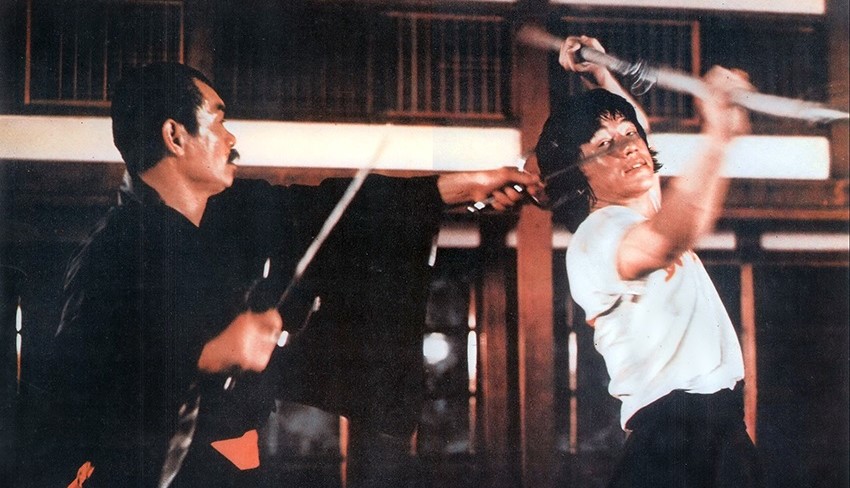
The lengthier cut features more character moments and some impressive establishing shots. Viewers get to see Li-Er’s escape by boat to Taiwan during a foggy morning, which is beautifully shot. The villain and his female henchperson get a stronger introduction and there are a couple of scenes here and there that do help viewers understand the plot. Alas, there’s also a great deal of extraneous material. Despite being a martial arts film, Lo Wei has no issue with long shots following characters as they leave and enter rooms. Some bits are unnecessary and some of the dialogue scenes are overextended.
Truthfully, this review actually found the shorter version much zippier, but also very confusing. The movie simply starts with Ah Lung in Taiwan and doesn’t deliver any backstory on Mao Li-Er that sets up the character. And the same goes for Okimura, who is more intimidating in the original edition. A version featuring portions of these sections and a few more details and establishing shots would have resulted in a bigger scale, cleaner narrative and the ideal cut of the movie (which probably would have run about 95-100 minutes).
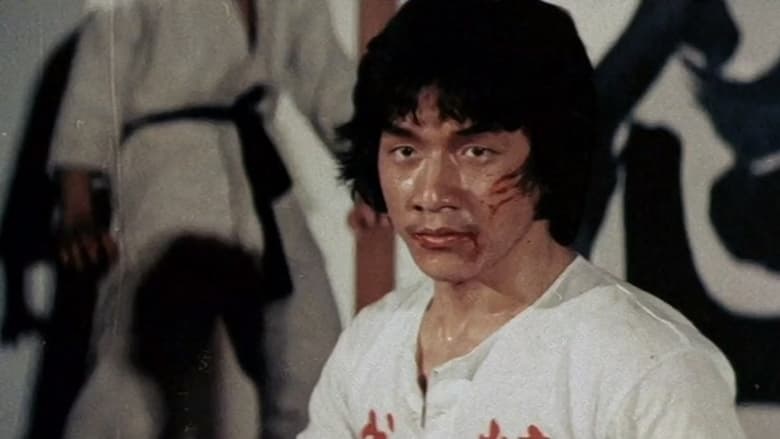
But, as mentioned, there’s still plenty of fun stuff here as we watch Chan start to get comfortable and form his own onscreen identity. The disc comes with some great bonuses that are very informative. There are film historian commentaries on both cuts of the movie (from martial arts cinema experts Frank Djeng & Michael Worth, as well as action film historian Brandon Bentley) and the details provided really clarify some of what was going on behind the scenes.
They talk about Chan and how he had virtually given up on being an actor at this point in his life, making ends meet as a construction worker in Canberra, Australia. He was coaxed back to star in this film, and while it wasn’t a hit, it did earn him attention in the industry and really started his career. They also mention his performance and how it differs from later starring roles, as well as the actor’s disagreements with director Lo Wei (whom he would work with again on a few occasions). Chan’s big fight at the end involves a female henchperson and they note that it marks one of the few times the actor has squared off against a woman. They all also note some story problems, particularly the strange decision by Mao Li-Er to move from an occupied section of China to a nation completely controlled by the Japanese, not to mention the picture’s jarring close. It’s all very informative and engaging to listen to.
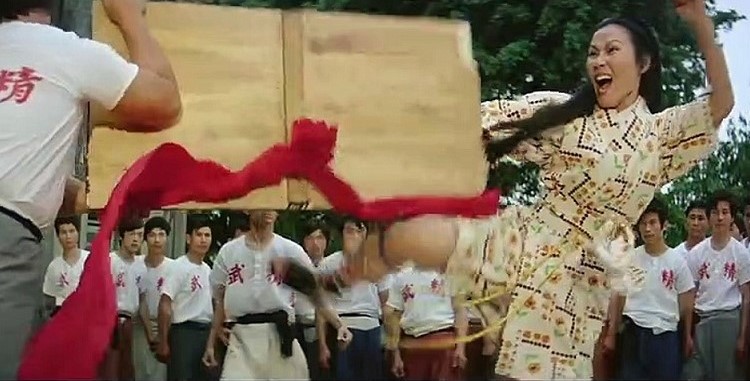
There’s also an excellent visual essay comparing New Fist of Fury to Fist of Fury Part II and noting all of the similarities and differences between them. The consensus of the piece is that both pictures have their pluses and minuses and they serve as almost a multi-verse splintering from the original film. Additionally, there is a still section and a very fun trailer gallery that includes previews not only for the pictures mentioned in this article, but the various remakes that have been made over the years.
Those who purchase the disc will also receive an illustrated collector’s booklet with new writing on the picture. New Fist of Fury is far from perfect, but it has some great moments and it is enjoyable to watch the first cinematic steps of a major worldwide action star. Anyone who appreciates the work of Chan or Hong Kong film should get a kick out of this nifty Blu-ray release from Arrow Video.


